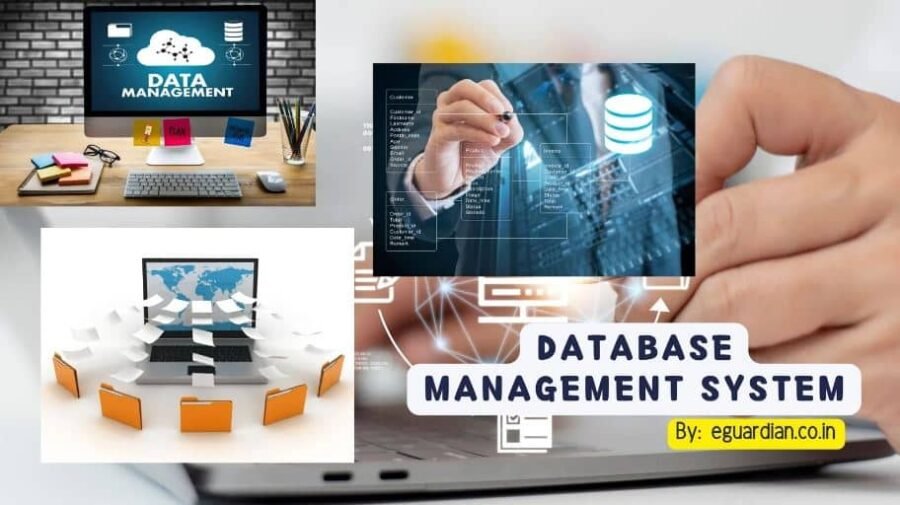
- Version
- Download 959
- File Size 34 KB
- File Count 1
- Create Date 27/11/2020
- Last Updated 11/07/2024
Download PDF: Database Management Systems MCQs
Are you preparing for a Database Management Systems (DBMS) exam? Looking for a comprehensive resource to test your knowledge and ensure you're ready for your test? We've got you covered!
Introducing Database Management Systems MCQs PDF!
This downloadable PDF contains a wide range of Multiple Choice Questions (MCQs) designed to help you master key concepts and principles of Database Management Systems. Whether you're a student, a professional brushing up on your skills, or just someone interested in databases, this resource is perfect for you.
What's Inside:
- Fundamentals of DBMS: Basic concepts and introductory questions to get you started.
- ER Model: Questions covering Entity-Relationship Models and design.
- Relational Model: In-depth questions on relational databases and normalization.
- SQL: Essential SQL queries and operations.
- Transactions and Concurrency Control: Key concepts and practical questions on managing transactions.
- Database Design: Advanced questions on database schema and architecture.
Why Download This PDF?
- Comprehensive Coverage: Covers all major topics in DBMS.
- Practice Makes Perfect: Test your knowledge with a variety of questions.
- Convenient Format: Easy-to-use PDF format that you can take anywhere.
- Free Resource: Absolutely free for download.
How to Download:
- Click on the Download button to access the PDF.
- Save the file to your device.
Start practicing and enhance your DBMS skills!
What is Database Management Systems (DBMS)?
A Database Management System (DBMS) is software that enables users to define, create, maintain, and control access to databases. It provides an efficient way to manage and retrieve data, ensuring that the data is stored systematically and securely. DBMS is a fundamental component of modern computing, playing a critical role in various applications and industries.
Key Functions of DBMS:
- Data Definition: Allows the creation, modification, and removal of definitions that define the organization of the data
- Update: Enables the insertion, modification, and deletion of actual data in the database.
- Data Retrieval: Provides query languages and tools to retrieve data as required.
- User Administration: Manages user access and ensures data security and integrity.
Types of DBMS:
- Hierarchical DBMS: Organizes data in a tree-like structure where each record has a single parent.
- Network DBMS: Uses a graph structure to allow multiple parent records for each child record.
- Relational DBMS (RDBMS): Uses tables to store data and SQL (Structured Query Language) for data management.
- Object-Oriented DBMS (OODBMS): Stores data in objects, similar to object-oriented programming.
Advantages of DBMS:
- Data Redundancy Control: Minimizes data redundancy and inconsistency.
- Data Integrity and Security: Ensures data accuracy and security by providing restricted access.
- Data Abstraction: Simplifies data access by abstracting complex data structures.
- Efficient Data Access: Enhances data retrieval and manipulation through optimized query processing.
- Concurrent Access and Recovery: Manages simultaneous data access and provides mechanisms for data recovery in case of failures.
Components of DBMS:
- Database Engine: The core service for accessing and processing data.
- Database Schema: The logical structure that defines the database's tables, fields, relationships, and more.
- Query Processor: Interprets and executes database queries.
- Transaction Manager: Ensures that database transactions are processed reliably and adhere to ACID (Atomicity, Consistency, Isolation, Durability) properties.
- Storage Manager: Manages disk space and data structures for storing and retrieving data.
Popular DBMS Software:
- MySQL: Open-source RDBMS widely used for web applications.
- PostgreSQL: Advanced open-source RDBMS known for its robustness and standards compliance.
- Oracle Database: Comprehensive, high-performance RDBMS widely used in enterprise applications.
- Microsoft SQL Server: Popular RDBMS with strong integration with other Microsoft products.
- MongoDB: Leading NoSQL DBMS, known for its flexibility and scalability.
Data mining and data warehousing MCQs with answers pdf
Applications of DBMS:
- Banking and Finance: Managing customer information, transactions, and accounts.
- Healthcare: Storing patient records, treatment histories, and medical research data.
- Retail: Inventory management, sales tracking, and customer relationship management.
- Education: Student information systems, course registrations, and grade tracking.
- Telecommunications: Managing call records, billing information, and customer data.
DBMS is a critical technology for any organization that needs to manage large volumes of data efficiently. By leveraging DBMS, businesses can ensure that their data is organized, accessible, and secure, supporting better decision-making and operational efficiency.
Don't miss out on this valuable resource. Sharpen your DBMS knowledge and ace your exams with confidence!